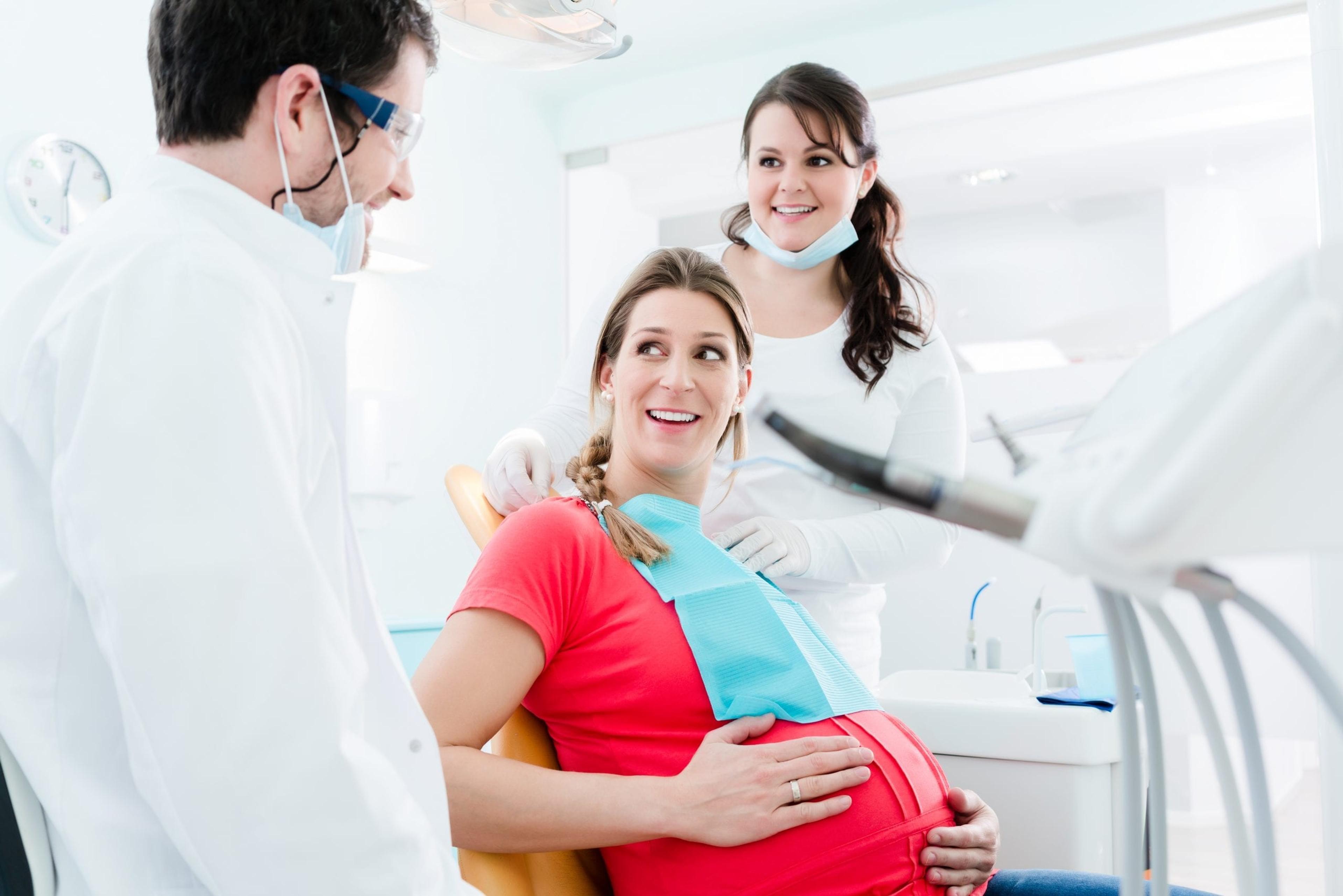Oral Health During Pregnancy and After for Baby
Julie Bitely
| 4 min read

With all the bodily changes and exhaustion that accompany pregnancy, paying more attention to your oral health might not top your to-do list. However, maintaining a healthy mouth throughout each trimester can help set you and your baby up for a healthy start. Pregnancy hormones and their effect on your mouth Changing hormones during pregnancy lead to many oral health issues to be aware of, said Dentist Lisa Knowles, associate dental consultant & dental director, Blue Cross Blue Shield of Michigan.
- Gingivitis: Hormonal changes can exacerbate how your body responds to bacteria, which can lead to gingivitis, a redness and swelling of the gums.
- Cavities: Feeling nauseated due to morning sickness? The steps you take to counteract a queasy stomach can negatively affect your teeth. Constantly snacking on crackers or giving in to sugary cravings can lead to cavities. As much as you can, Knowles said finding healthier snacking alternatives can help counteract a mouthful of cavities as a new mom. Craving sweets? Try fruit first. Need bubbles from soda pop to settle your stomach? Try sparkling water instead.
- Enamel erosion: While you can’t avoid vomiting due to morning sickness, Knowles advises that you don’t brush your teeth immediately after you get sick. The stomach acid your teeth are exposed to can erode teeth and brushing can make it worse. She said swishing with a saltwater rinse is your best course of action right after getting sick and that it’s safe to brush about 30-45 minutes after vomiting.
- Granuloma: These round growths can appear on gums and cause bleeding. They’re caused by changing hormones and typically resolve themselves although you should see your dentist if a lesion becomes particularly bothersome.
Healthy mouth, healthier baby According to the American Dental Association, periodontitis is associated with “pre-term birth, low birthweight babies, low birthweight babies born prematurely and the development of pre-eclampsia,” a potentially dangerous complication marked by high blood pressure. Knowles said your goal during pregnancy should be to keep inflammation down in your mouth. Brushing and flossing regularly goes a long way toward keeping your mouth healthy. Dental checkups and cleanings are safe during pregnancy, despite historical misconceptions about the practice. Knowles suggests making an appointment for a dental checkup right after you find out you’re pregnant, especially if you haven’t been in a while. If you’ve been going every six months, it should be fine to stay on your regular schedule, although you might want to move up your appointment based on your due date. Even routine x-rays are fine, provided mom and baby are covered by a lead vest. “You’re trying to make sure everything can go right for baby,” Knowles said. “You don’t want energy going to fight periodontal disease when you can prevent it by brushing, flossing and getting regular cleanings at the dentist.” Caring for baby’s gums and teeth Once baby arrives, keep up the good dental habits you’ve established during pregnancy. You’re the best role model to establish a healthy routine early on. Knowles offers these tips:
- Breastmilk or formula should be baby’s only food until six months, unless otherwise advised by your pediatrician. After baby eats, gums can be wiped with a warm, damp cloth so milk doesn’t sit on the gums. This is a particularly good step right before bedtime.
- Don’t let your baby keep a bottle in bed as this can lead to baby having milk on their teeth and gums all night. If they’re older than six months and use a bottle to soothe, Knowles said a bottle with water is okay.
- Once those sweet little teeth start popping through, establish a brushing routine, especially important before bed. You can demonstrate flossing when kids are young – this habit will be important when they start getting molars, which a toothbrush can’t get between.
- Schedule a dental checkup by age 1 or when baby’s first tooth comes in. If your family dentist won’t see children that young, ask for a referral to a pediatric dentist. At the first visit, your dentist will check for any abnormalities in baby’s mouth as well as early signs of cavities or excessive plaque on teeth. This first visit is important in establishing a good routine when it comes to dental checkups.
- Overall, limit sweets and juice – the American Academy of Pediatrics recommends no fruit juice for kids under age 1, up to 4 ounces daily for kids age 1-3, and only 4 to 6 ounces for kids age 4-6. For kids 7 and up, the recommendation is to limit fruit juice servings to one cup per day. Knowles said parents need to stay strong and set limits.
“I can’t tell you how many sad parents I see when their kids have cavities,” she said. “You are the protector for your child’s health and dental health falls under that umbrella too.” Are you expecting or a first-time parent? How are you focusing on your dental health and helping your kids do the same? In need of dental insurance? Learn more about Blue Cross’ Blue Dental plans here. Related content:
- A Guide to Managing Children's Dental Health
- Dental Program Provides Emergency Service for Low-Income Patients
- Offering Dental and Vision Insurance is Good for Business
Photo credit: kzenon





